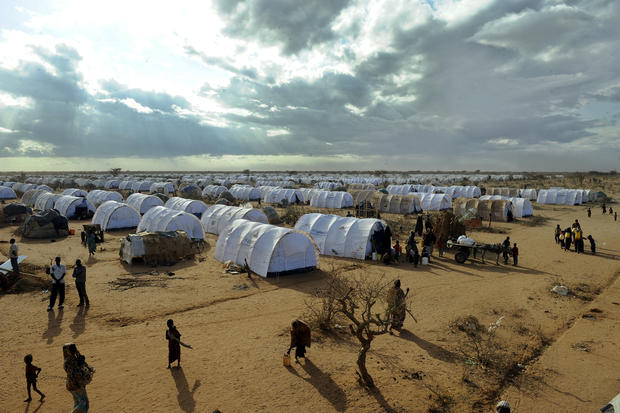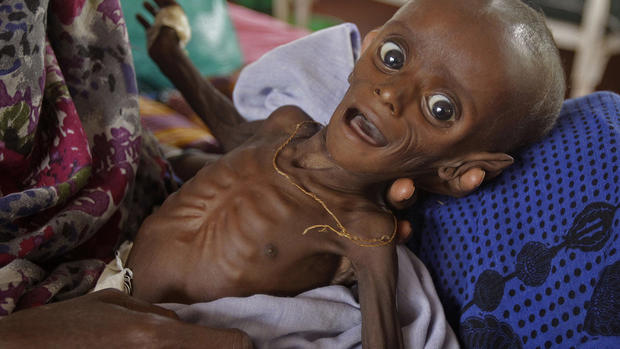Somalia crisis may put U.S. terror laws on hold
An estimated 11 million people in and around Somalia are at risk of starvation amid the worst drought to hit the nation in a generation, a crisis so dire it is about to force the Obama administration to ease rules meant to block the funding of terrorist groups.
Billions of dollars in aid has been pledged by the global community to help stave off the mounting disaster, and it's increasingly reaching those most in need, but a damning obstacle remains in the form of an Islamic terror group called al-Shabab.
The al Qaeda-linked organization has complete control over much of southern Somalia - the region hardest hit by the drought, where the U.N. has declared a famine.
Somalia refugees: No food to break Ramadan fast
Obama says Somalia deserves more attention
Video: Somali refugee crisis mounts
For months, al-Shabab refused to let many of the largest aid organizations work in the area at all. Now, the U.N.'s World Food Program is on the ground there, feeding almost 200,000 people in desperate need.
That is a drop in the bucket compared to the roughly 2.2 million in southern Somalia at risk of starvation as famine grips the country where 20 years of civil war has rendered the central government all but impotent in many areas.
Current U.S. law bans any American-funded organization giving money or materials to terrorist organizations, but al Shabab routinely demands payoffs from aid groups, or "tax" payments" that want to operate in their territory.
AU forces gain ground against Somali militants
The Washington Post reports that the urgency of the Somali crisis has pushed the Obama administration toward issuing special licenses to aid groups, allowing them, in essence to pay a terrorist group for access to southern Somalia.
Administration officials tell the Post there's been "no major disagreement" within the White House about easing the restrictions, they are just taking moving with caution to ensure as little aid and cash as possible falls into al Shabab's hands.
Dr. Timothy Wittig, a researcher at the National Defense University and author of "Understanding Terrorist Finance," says the concerns are "well founded, but probably outweighed by the reality of the scale of human suffering and the fact that al Shabab will, at most, likely only get marginal benefit from taxing or diverting aid."
"Al Shabab receives most of its income by taxing trade flows and indigenous Somali industries, and it's unlikely this would be different," Wittig tells CBSNews.com, "but given that al Shabab is factionalized, it's likely that any such taxation will be mostly ad hoc and relatively small scale, especially compared to what the group already earns through other means."
According to the Post's article, al Shabab gains much of its funding through the "taxes" on domestic charcoal production.
Wittig also points out that the terror group's omnipresence in southern Somalia makes it, "in many ways vulnerable to local opinion."
"If they are perceived to be greatly exacerbating the famine, this would probably undermine al Shabab's position in the country in the long-run. They know this, giving them an active interest in not interfering with aid flows in a major way, at least in this immediate emergency situation."
It isn't immediately clear from the Washington Post's article how long it might take to ease the terror laws in Washington in order to increase the flow of aid into southern Somalia, but the need couldn't be more urgent.
"What needs to happen is all actors on the ground -- insurgents, the U.S. government and donors -- need to lift any restrictions" Shannon Scribner, humanitarian policy manager at Oxfam told the Post.


